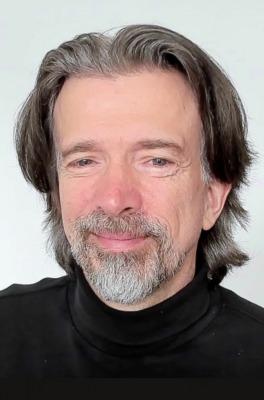Prof Kaspar Althoefer
Dipl.-Ing. Aachen, PhD, IEEE Fellow
Professor of Robotics Engineering
Head of Centre for Advanced Robotics @ Queen Mary (ARQ)
Fellow of IEEE
ERC Synergy Grant Awardee
Engineering 337, Mile End
| Feedback/ support hours: |
Feedback/support hours: Please arrange a meeting by email. |
| Expertise: | Professor Althoefer's research focuses on soft robotics, tactile sensing and perception, modelling of tool-environment interaction dynamics, embedded intelligence and haptics with applications in robot-assisted minimally invasive surgery, rehabilitation, assistive technologies, remote inspection for the nuclear and construction sectors, and human-robot interactions in the manufacturing environment. |
| Research Centre: | Intelligent Transport |
| Affiliations: | Fellow of the IEEE. |
Brief Biography
Professor Kaspar Althoefer is a roboticist, leading research on Robotics at Queen Mary University of London. After graduating with a degree in Electronic Engineering from the University of Technology Aachen, Germany, and obtaining a PhD in Robot Motion Planning from Kings College London, he joined the Kings Robotics Group in 1996 as a Lecturer. Made a Senior Lecturer in 2006, he was promoted to Reader and Professor in 2009 and 2011, respectively. In April 2016, he joined Queen Mary as full Professor of Robotics Engineering.
His current research interests are in the areas of robot autonomy, soft robotics, modelling of tool-environment interaction dynamics, tactile sensing and neuro-fuzzy-based sensor signal classification with applications in robot-assisted minimally invasive surgery, rehabilitation, assistive technologies and human-robot interactions in the manufacturing environment.
He was awarded more than £10 Million (as Principal Investigator (PI), price to funder) in competitive research funding from funding bodies such as the Wellcome Trust, EPSRC, Innovate UK, the European Commission and the European Research Council (ERC); he strongly contributed to the attainment of further grants in excess of £50 Million, especially through collaboration with colleagues at St Thomas Hospital London focusing on creating robotic solutions for the healthcare sector. Prof Althoefer was the coordinator of two EU projects (STIFF-FLOP and CONPHIRMER), and PI/Co-I on numerous further EU, EPSRC, Innovate UK and industry-sponsored projects. He is currently one of four PIs of the �?�10 Million Synergy project EndoTheranostics, funded by the European Research Council (ERC).
Prof Althoefer has authored/co-authored more than 400 peer-reviewed papers. The majority of his journal papers are in the top journals of the field, including top transactions and journals of the IEEE and ASME and proceedings of the leading national learned societies in the field, IMechE and IET. He is named inventor on seven patent applications. His Google Scholar h-index is 71, and the number of citations to his work on Google Scholar exceeds 18,000.
He was the principal supervisor of more than 30 successful PhD students. He is currently heading a team of 10 PhD students and postdoctoral Research Associates.
His current research interests are in the areas of robot autonomy, soft robotics, modelling of tool-environment interaction dynamics, tactile sensing and neuro-fuzzy-based sensor signal classification with applications in robot-assisted minimally invasive surgery, rehabilitation, assistive technologies and human-robot interactions in the manufacturing environment.
He was awarded more than £10 Million (as Principal Investigator (PI), price to funder) in competitive research funding from funding bodies such as the Wellcome Trust, EPSRC, Innovate UK, the European Commission and the European Research Council (ERC); he strongly contributed to the attainment of further grants in excess of £50 Million, especially through collaboration with colleagues at St Thomas Hospital London focusing on creating robotic solutions for the healthcare sector. Prof Althoefer was the coordinator of two EU projects (STIFF-FLOP and CONPHIRMER), and PI/Co-I on numerous further EU, EPSRC, Innovate UK and industry-sponsored projects. He is currently one of four PIs of the �?�10 Million Synergy project EndoTheranostics, funded by the European Research Council (ERC).
Prof Althoefer has authored/co-authored more than 400 peer-reviewed papers. The majority of his journal papers are in the top journals of the field, including top transactions and journals of the IEEE and ASME and proceedings of the leading national learned societies in the field, IMechE and IET. He is named inventor on seven patent applications. His Google Scholar h-index is 71, and the number of citations to his work on Google Scholar exceeds 18,000.
He was the principal supervisor of more than 30 successful PhD students. He is currently heading a team of 10 PhD students and postdoctoral Research Associates.







